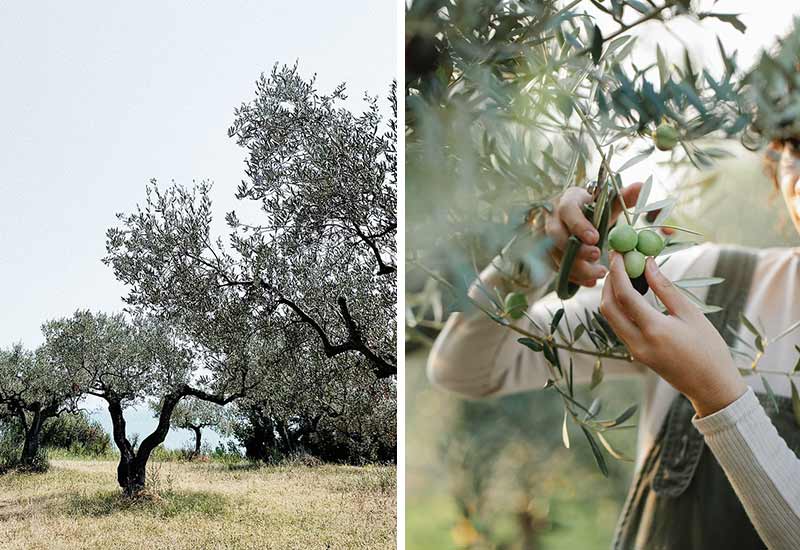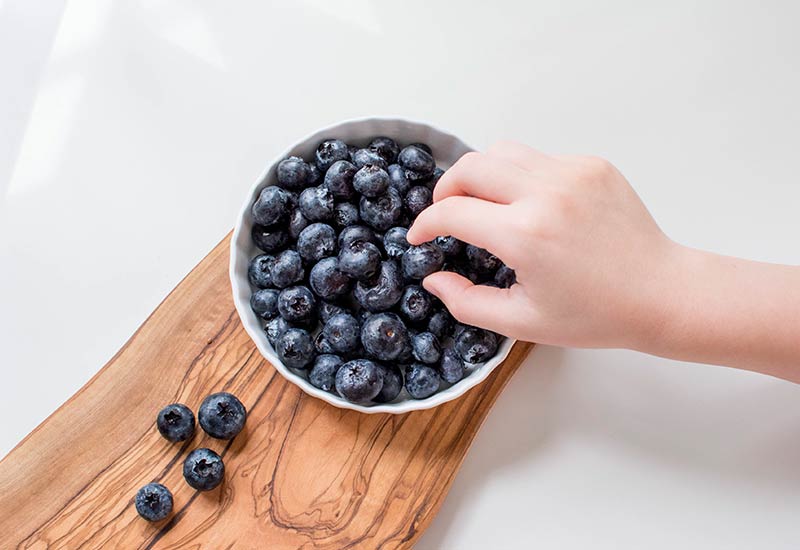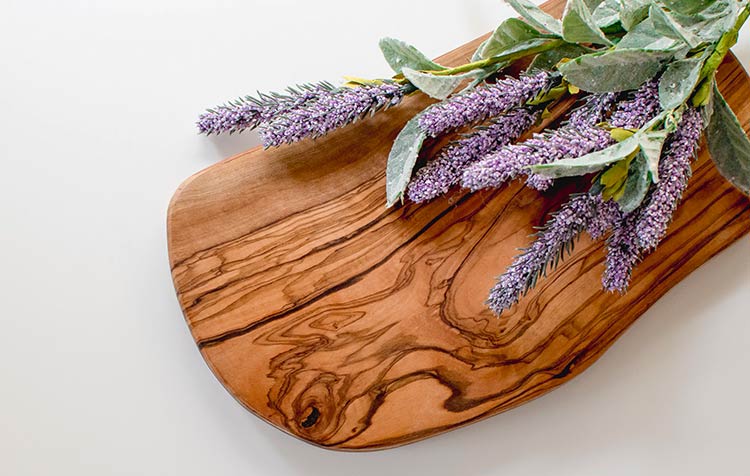Want to know how olive wood fares in terms of sustainability? Then you've come to the right place! Whether as a cereal bowl, cutting board, cooking spoon or knife block - the timeless wood of the gnarled olive tree has long since found its way into our four walls. But in fact it is not only environmentally friendly because it is so timeless!
In this article, I would now like to present you with good reasons why and under what circumstances the olive wood is sustainable.
In advance, you can find here already a brief overview of the article. Olive wood is sustainable because/if it...
- has a high degree of hardness
- is easy to maintain
- comes from environmentally friendly cultivation
- is maintained regularly
- is treated well
1. high hardness
Olive wood is one of the hardest woods in the world and has, for example, twice the high degree of hardnesssuch as the popular oak wood.₁ Its robustness is a major reason why the wood is very durable. A decisive prerequisite for its ecological balance. In addition, it is very cut resistant and resistant against scratches, shocks and also moisture.
2. easy care
The honey-colored products from Olive wood have another feature that makes them so durable: they are extremely easy to maintain. On the one hand, because they have a naturally high proportion of tanning agents that make the wood antibacterial make it work. In combination with the low odor and liquid absorption therefore, cleaning basically does not require the use of chemical cleaners to be able to use it for years.
3. ecological forestry

Olive wood is a renewable resource: this is already a basic requirement for the material of sustainable goods. However, the olive tree does not grow very quickly. But as a rule, the wood also gets only when the tree no longer bears fruit, into the trade - an important aspect in terms of sustainability! The slow growth is even an advantage - because it is the essential reason that the wood is ultimately so hard and robust.
Nevertheless, when buying, you should pay attention to the seals of the certification systems Forest Stewardship Council (FSC) and Program for the Endorsement of Forest Certification Schemes (PEFC) pay attention. This ensures that you buy products whose wood comes from sustainably managed forests and whose production is checked at every step from cultivation to finishing.
In order for the olive wood to be sustainable, it should be processed also treated in an environmentally friendly way be. This includes drying for several years, as well as natural oiling with organic olive oil.
4. constant care
The material olive wood gives your kitchen and other rooms a touch of Mediterranean flair. But as robust as it may be, the ravages of time will of course eventually wear away at the corresponding products. So that they live as long as possibleThey must be regularly maintained (depending on the area of use, of course).
Fortunately, there are only a few things to pay attention to. For example, clean the cutting board simply with a soft Rinsing sponge and a shot of a natural and homemade ivy dishwashing liquidbefore you dry it with a cloth.
In order to preserve the smooth surface and the product itself for as long as possible, you should also best Once a month clean, allow to dry, and then apply a slightly heated, vegetable oil (e.g., low-odor linseed oil) and a cloth. This simple measure also ensures that the wood does not dry out and remains as beautiful as it is for a long time.
5. good treatment
So that the olive wood is sustainable, the care is one thing - but the general handling of it, the other. For example, the cereal bowl or the kitchen board made of the popular wood with the beautiful grain may be not cleaned in the dishwasher be. The risk would be too great that the wood would become cracked and brittle and bend due to the hot, pressurized water. If this mistake is made just a few weeks after the product is purchased, the sustainability of the product is ruined.
If olive wood products were treated accordingly well, there is absolutely nothing to prevent them from being used in used or reworked form to buy at the flea market, to natural Conserve resources - but not least because olive wood objects are timeless and with good care will last for decades.
So olive wood can be environmentally friendly and sustainable

So the material olive wood is fundamentally sustainablebecause it is so extremely robust and durable. As long as the products then also come from ecological origin and are cared for and treated accordingly at home, they can also be used in a truly environmentally friendly and resource-saving way.
I hope that I have been able to provide you with valuable information about the sustainability of this special wood. Do you have any questions or suggestions? Then I look forward to your comments!
Stay sustainable,

PS.: Environmental protection seems to be very important to you, too! You already know, what you can do every day against the deforestation of the rainforests can? You can find out now in the linked article. Have fun!
References:
₁ Guido Kindler: Holzhärte Tabelle nach Brinell, available at https://www.olivenholzprodukte.de/Holzhaerte-Tabelle-nach-Brinell. [19.11.2021].





